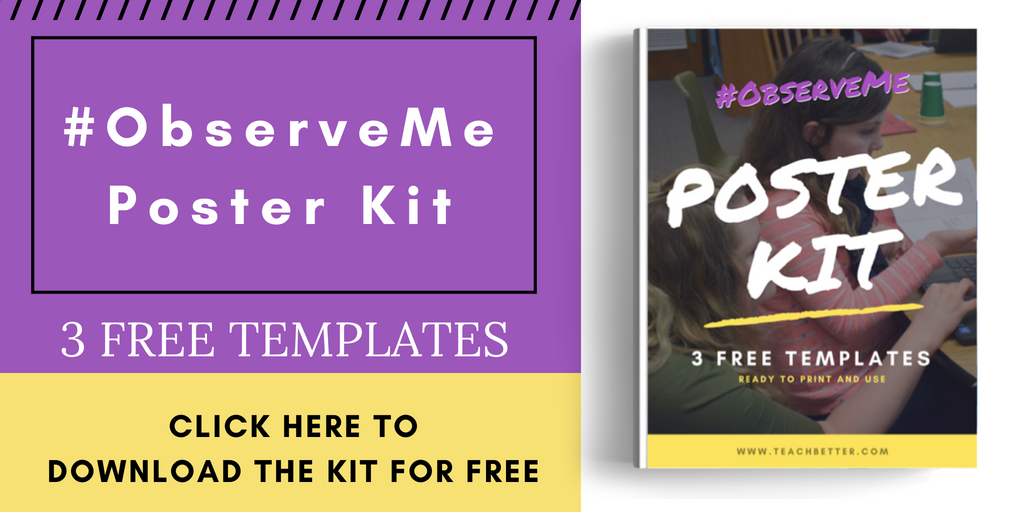That first year of teaching is crazy, isn’t it? Thinking back on it, you can probably feel the energy. The excitement. The sheer terror and anxiety of getting ready for your very first classroom.
If you are in that critical, crazy first year, you know exactly what I am talking about. The joy mixed with fear. Preparation mixed with confusion. Where do I pick up my mail? How do I get into my email? Where do I go on day 1 to pick up my students? How do I assign lockers to sleepy 10th graders dreading the return to school?
There are likely a million (or more) questions running through your head right now. It’s scary stuff, isn’t it?
Here is the good news: Every teacher that has ever existed in the history of the world has, at some point, had a first year of teaching. And they survived!
You can, too. Here are a few ideas that can make it a little bit easier to handle.
1. Do your homework!
One of the greatest sources of anxiety for me as a first-year teacher was learning names. Not my students’ names, but my colleagues’ names! I had some great ideas for how I could learn student names. But learning my neighbors’ names or the secretary’s name? Terrifying! I can only say, “Hey, teach!” so many times before I will eventually have to call someone by name.
I remember pulling it off pretty well for a few months. But when December rolled around, and I still didn’t know the name of the fifth-grade teacher with the long blonde hair, I knew I had a problem.
Enter: the school website!
You can often find pictures of staff members on your school’s website, with information about the grade/subject they teach. Now, when I start a new job, I spend the summer beforehand researching who my coworkers will be. I literally practice them like flashcards!
When I walk in on day one, I know who is who, and it takes so much stress off of my shoulders. Plus, calling a colleague by name goes a long way towards building those positive relationships you will rely on all year!
[scroll down to keep reading]
2. Create a list of “How do I?” questions.
There is going to be so much that you do not know. You went to college for years to earn this degree in education. You took tests and honed your craft in field experiences and student teaching. But there is no class titled, “Where are the mailboxes?” or “Adding comments to report cards.” These little administrative tasks add up and can cause some significant stress for new teachers! Consider printing out the following list of questions and make sure you have answers to them before the students’ first day.
- Where are the mailboxes?
- How do I send intradistrict mail?
- What do I do when I need supplies for the classroom?
- How does dismissal work? Where do I need to be? What do I need to do?
- What are the grading policies? A certain number of grades per week? Standards-based grading?
- How does the school keep track of and communicate events like assemblies or field trips?
- Is there a requirement to send home newsletters? How often?
- Is there a school policy on hall passes?
- What is the procedure if a student comes to school late?
- How do I take attendance?
- What technology do students have access to and how do I get it to them?
- What role does the media center play in the school?
This is by no means an exhaustive list, but it is a good place to start!
3. Dive right in!
Many teachers and administrators you talk to will advise you to start the school year with rules and procedures. What I am about to tell you flies in the face of that advice!
Start day one with learning!
You have all year for students to learn how to sharpen their pencil during class, or how to turn in homework. But the first moment students walk into the room is the perfect time to set the stage for the engaging learning that will happen this year. Sitting in neatly labeled desks and learning the rules of the class is not a first activity that holds any interest for students. The first day of school should get students thinking, exploring, and questioning. It should be a learning experience full of movement and energy and excitement.
If we want students to buy into the classroom environment we are trying to build- one that sets their neurons on fire- we have to hook them right away. You can teach them where the scissors go later. You can’t get a second chance at a first impression.
4. Find your own voice.
You will probably be a part of a team of teachers who teach the same grade level or the same content area. They will, undoubtedly, have oodles of resources for you to use. They will have their own routines and procedures they are accustomed to. While it is not necessary to completely reinvent the wheel, it is important to not rely too heavily on what your colleagues do and how they do it.
You were chosen for the position for a reason. You were hired over all the other applicants for a reason. The district saw value in who you are and what you can bring to the table. Don’t be afraid to show your stripes!
You might get some pushback from colleagues who are not used to your approaches. You might feel like the odd one out when you try something new in your classroom. If your experience reflects my own, you might even get some looks of confusion or outright glares from teammates who don’t understand or are downright hostile to your new ideas.
Be open to their thoughts, certainly. But don’t compromise your ideas, your inspiration, and your passion to fit in with the crowd. Find your own voice…and use it.
5. Protect your passion.
Remember when I said you were hired for this position because of your beliefs and your passion? Don’t let it fade. Your first year teaching will likely be one of the most challenging transitions of your life. Harder than middle school. Scarier than going off to college. More impossible than student teaching.
You have not known challenges like the ones you will experience in those first 180 days of your career. Yes, there will be times when you cry in your car driving home from work because you are so overwhelmed. And there will absolutely be moments when your pile of papers to grade towers over you. I can promise that you will not know what to do with the student that hates school. And you definitely won’t know what to do when a parent is upset with you.
Through all of this, you must protect your passion. You must come back to why you are where you are. Why did you choose this career? Why do you love those “A-ha” moments? Write out your reasons why and tape them to the dashboard of your car or your bathroom mirror. Even keep a copy in the drawer of your desk and set an alarm on your phone that reminds you of your why every single day.
6. Be kind to yourself.
One of the most important pieces of advice that every first-year teacher must heed is to take care of themselves. Teachers are notorious perfectionists. There is something about this career that attracts passionate, hard-working, overachievers. These characteristics serve you well in your endless pursuit of teaching better, but they can also be your Achille’s heel.
Undoubtedly, your energy and enthusiasm will keep you going in those first few weeks. But, at some point, that starts to fade and you will start to crash. It will most likely happen in the weeks leading up to winter break when your energy reserves are depleted. Your students are tired. You are tired. It seems like the whole world is tired! At these moments, recognize what is happening and carve out some time for yourself. Yes, you will have urgent deadlines looming and you probably have a thousand papers to grade and phone calls you have to make. But they will all still be there tomorrow. It is OK to take an evening to yourself. In fact, it is vital.
My first year of teaching I was consistently the last person to leave the building. Sure, my lessons were fantastic and the students and parents alike loved me. But I was killing myself trying to keep it all up. If you are going to survive in this career, you need to allow yourself to let go of some of that perfectionism. If you don’t, you are setting yourself up to burn out within a couple years.
The students in your classroom need you to be the passionate, enthusiastic, engaging teacher you are. They do not need perfection. They need passion. And the only way they will get that consistently from you day after day and year after year is if you take care of yourself.
7. Find your people.
You don’t have to be friends with every adult in the building. But you DO need to be friends with the people who fuel your fire. Seek out the innovators in your building. Reach out to some of the amazing educators on Twitter who are changing the world every single day. When you find your tribe, use them to fuel your enthusiasm, to brainstorm ideas together, and to push the envelope of what is possible in education.
Sometimes, it is lonely being the teacher in the district who is always pushing, always trying new ideas, and challenging the status quo. You will need people you can lean on for support when the going gets tough. And trust me, the going always gets tough at some point in that first year. When you surround yourself with positive change-makers with a stubborn belief in the possibilities for the future of education, you will survive that first year and create amazing learning experiences for your students.
Go forth!
Now, you wonderful first-year teacher, get out there and change the world! Design those lessons and plan those units. Stoke the fires in your students’ imaginations and help them see that they, too, can change the world.
We’ve got your back. Always.



